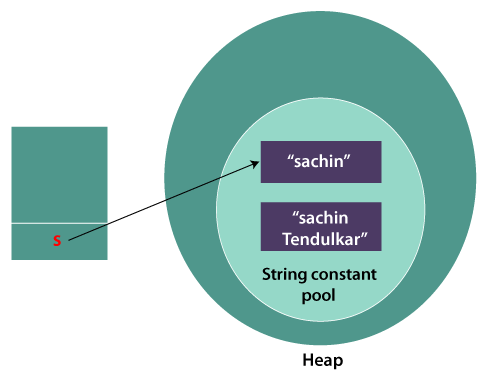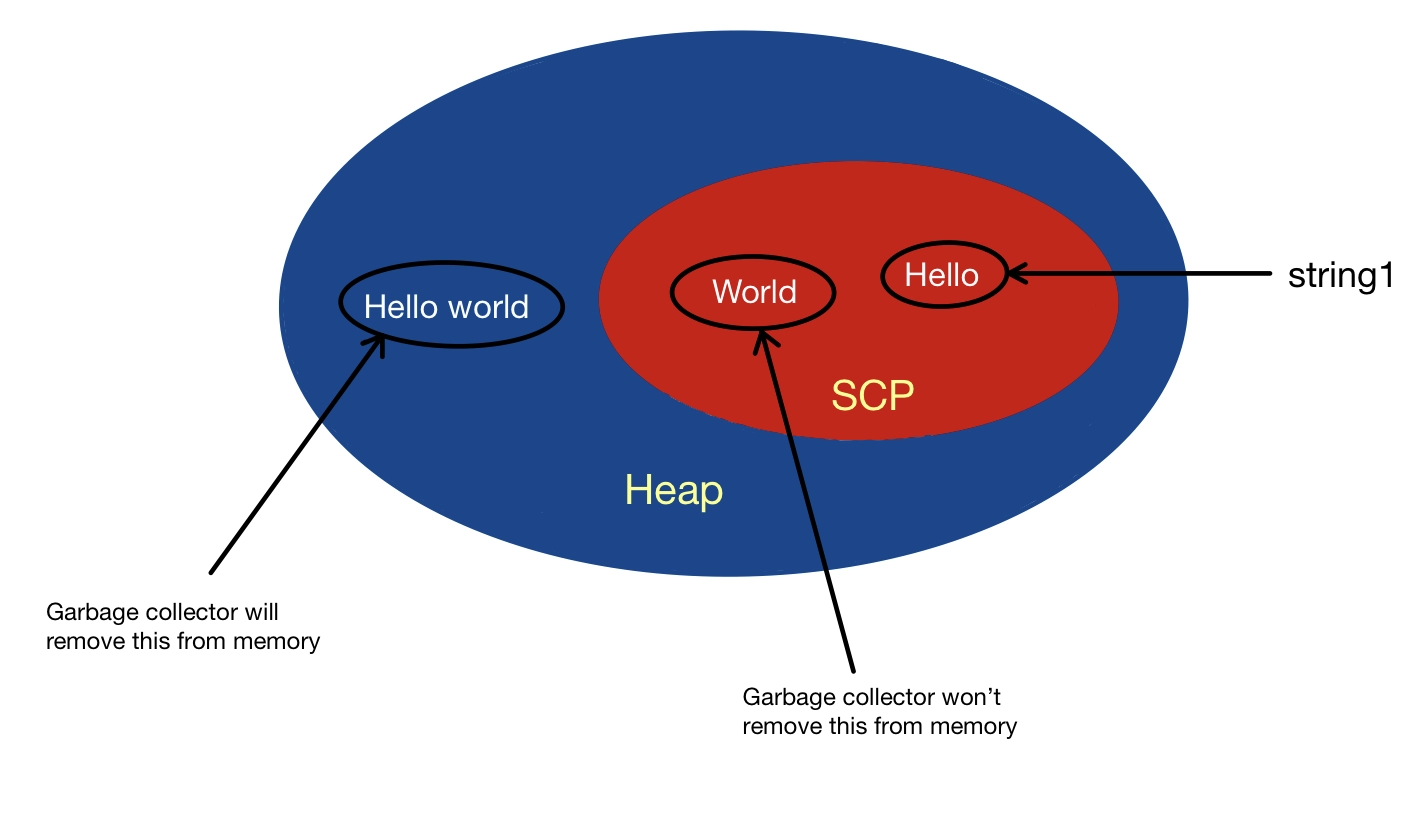Exploring the Advantages of Unalterable Strings in Modern Shows Paradigms
In the world of modern programming standards, the idea of immutable strings stands as a cornerstone of durable software program advancement. The advantages they offer go past simple comfort; they essentially modify the means data is handled within applications. By adopting unalterable strings, programmers can ensure improved information integrity, improved string security, simplified debugging procedures, increased security actions, and reliable efficiency optimization. These benefits offer as a testament to the profound influence that accepting immutability can carry the reliability and effectiveness of software application systems.
Boosted Data Honesty

By stopping the adjustment of string objects, immutability eliminates the threat of unintended modifications to the information they hold. This not just enhances the protection of the details yet likewise improves the dependability of the code that depends on these strings.
Immutability additionally sustains safer multithreading atmospheres, as concurrent access to immutable strings does not present the risk of information corruption through synchronised modifications. This home streamlines the procedure of taking care of strings in identical shows circumstances.
Basically, immutability serves as a protective shield around the data kept within strings, enhancing their honesty by making sure that as soon as defined, their worths continue to be unmodified throughout the program's execution.

Improved Thread Safety And Security
Unalterable strings boost the thread safety and security of programs by ensuring that when a string item is created, its value can not be changed. This property removes the danger of concurrent strings attempting to customize the same string simultaneously, which can bring about data corruption or irregular states in the program - Why are strings immutable in Java?. In a multi-threaded atmosphere, where numerous threads gain access to and manipulate data simultaneously, the immutability of strings offers a level of safety by guaranteeing that the data stays the same throughout its lifecycle
Simplified Debugging Procedures
Offered the enhanced string safety helped with by unalterable strings, a considerable advantage emerges in the realm of simplified debugging processes. Unalterable strings, as soon as created, can not be altered, making it much easier to map the circulation of information and determine the source of insects in a program. This immutability ensures that strings remain consistent throughout the execution of the program, minimizing the probability of unanticipated modifications that can lead to errors.
When debugging with mutable strings, programmers often experience problems where a string's value is customized accidentally, making it testing to determine the origin of a bug. Nevertheless, with immutable strings, the information continues to be the same, enabling designers to concentrate on analyzing the real reasoning of the code instead than locating where and when a string was customized incorrectly.
In addition, immutable strings streamline the debugging procedure this website by making it possible for simpler reproduction of pests. Because immutable strings do not transform state, developers can recreate and examine pests extra efficiently, bring about quicker recognition and resolution of concerns within the codebase. This streamlined debugging process ultimately contributes to higher software quality and boosted total advancement efficiency.

Raised Protection Actions
Enhancing information protection and fortifying system honesty, the usage of immutable strings in software application applications contributes substantially to increased security measures. Immutable strings, as soon as produced, can not be customized, offering an important defense against harmful tampering or unauthorized accessibility. By making certain that delicate information stored in strings stays unaltered throughout the program's implementation, the danger of data breaches or injection attacks is substantially reduced. Why are strings immutable in Java?. Immutable strings additionally play an important role in avoiding common security susceptabilities such as barrier overflows and SQL injection attacks, as attempts to manipulate string information at runtime are naturally restricted.
Additionally, the immutability of strings boosts the predictability of program behavior, making it easier to validate inputs and protect against unanticipated changes that can compromise safety. This predictability simplifies the process of bookkeeping and confirming code, enabling developers to identify possible safety and security loopholes extra properly. Overall, integrating immutable strings right into software program development techniques not just improves the robustness and integrity of applications yet also enhances their durability versus protection dangers.
Effective Efficiency Optimization
Building upon the structure of raised safety actions attained with the application of immutable strings, a vital aspect to consider in software growth is reliable efficiency optimization. When dealing with mutable strings, operations like concatenation or substring creation frequently cause the creation of brand-new string objects, bring about memory overhead and increased processing time. Nevertheless, with immutable strings, these procedures can be maximized to enhance efficiency. Get More Information By allowing strings to continue to be continuous and stable, immutable strings promote far better memory monitoring and caching chances, eventually increasing the overall effectiveness of the software application.
Unalterable strings also play a critical duty in multithreaded settings by advertising thread safety and security. Why are strings immutable in Java?. Given that immutable strings can not be changed when created, they can be shared throughout strings without the risk of unanticipated modifications, decreasing the demand for synchronization devices and improving concurrency. Additionally, unalterable strings simplify debugging procedures as developers can rely on that a string's worth will stay consistent throughout the program's execution, removing possible errors created by mutable state modifications. In verdict, making use of unalterable strings not only boosts security yet likewise significantly adds to the efficient efficiency optimization of modern software systems.
Final Thought
To conclude, the benefits of using unalterable strings in modern-day programming standards can not be overemphasized. Boosted information honesty, boosted string safety and security, streamlined debugging processes, increased safety steps, and efficient efficiency optimization all add to the total performance of shows jobs. By integrating immutable strings right into programming practices, programmers can gain from a much more trustworthy and durable codebase.
Immutability, a crucial feature of strings in programming languages such as Java and Python, ensures that when a string things is developed, it can not be changed or changed.Immutable strings Get More Info boost the string safety of programs by guaranteeing that as soon as a string things is developed, its worth can not be customized. Immutable strings also play an important role in protecting against typical protection vulnerabilities such as barrier overflows and SQL shot assaults, as attempts to adjust string data at runtime are inherently limited.
By permitting strings to continue to be consistent and unchangeable, immutable strings assist in far better memory administration and caching opportunities, ultimately boosting the general efficiency of the software program.
Unalterable strings streamline debugging processes as developers can rely on that a string's value will continue to be consistent throughout the program's execution, eliminating prospective errors triggered by mutable state changes.